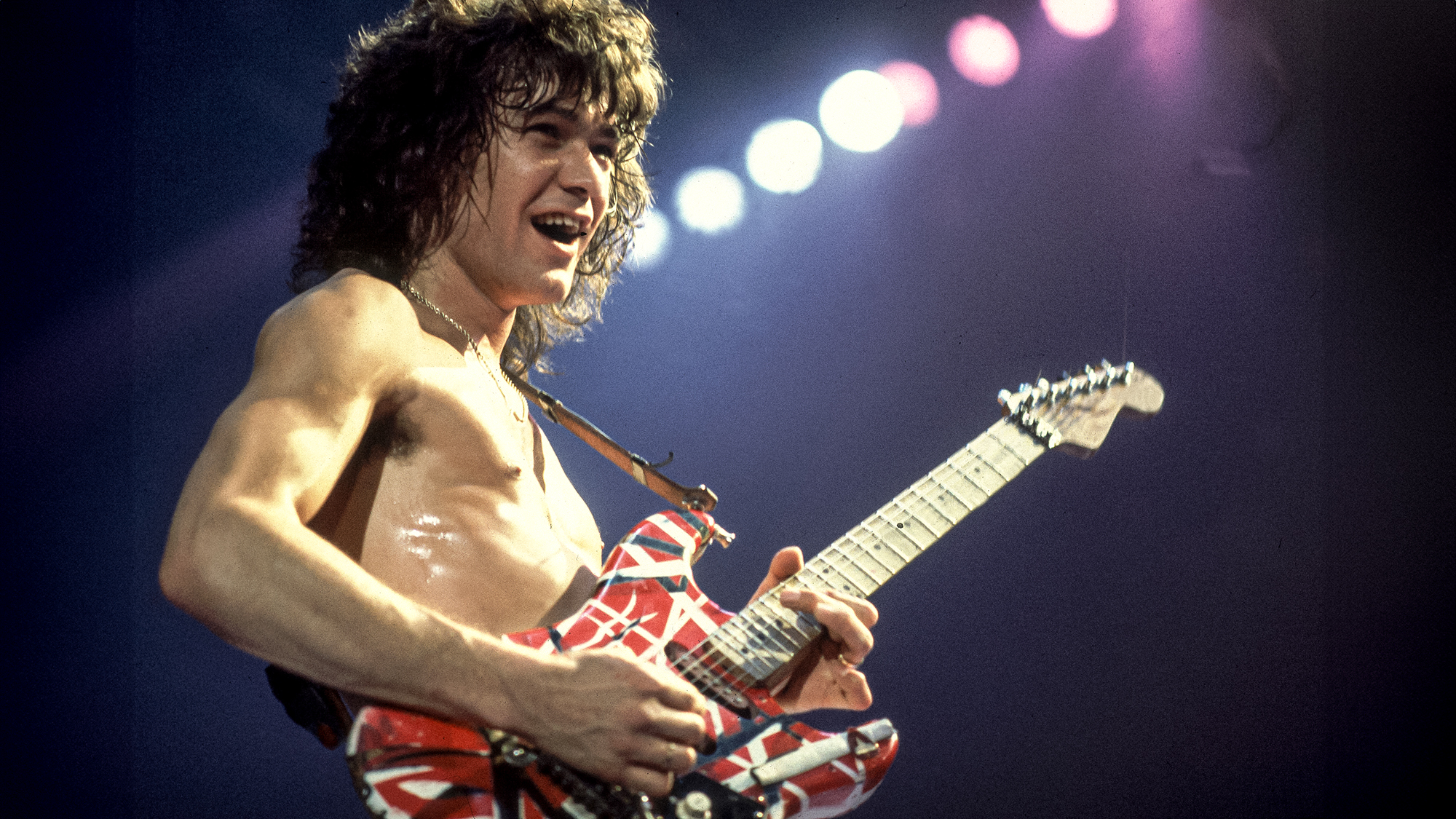“After the second audition they said, ‘You’re the one.’ And I said, 'I’m not sure you’re the one.’” Ace Frehley recalled his Kiss audition and revealed the amp setting that works every time
The Space Ace also shared details about his modified Les Pauls and guitar solos in his classic 1979 interview
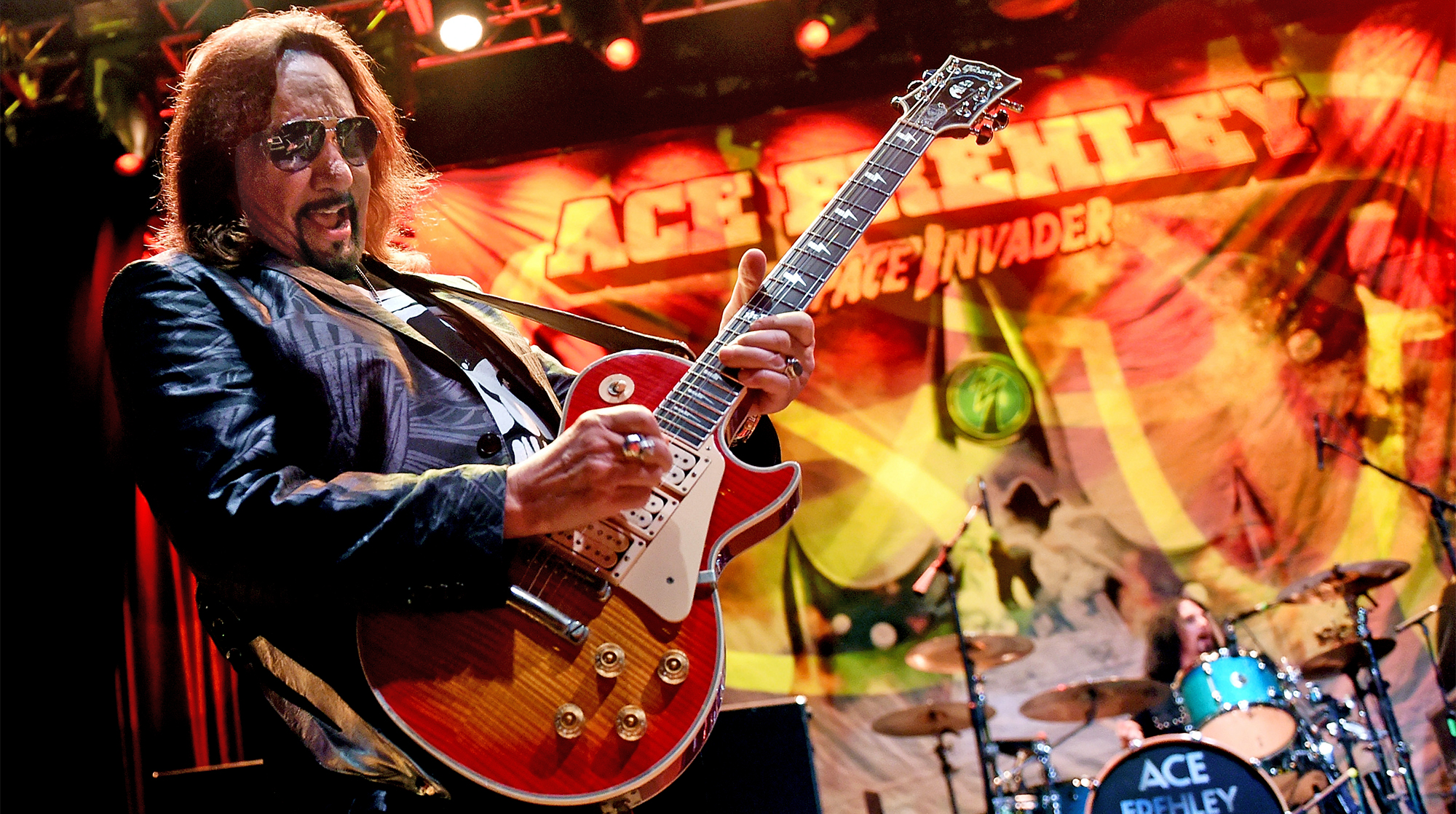
All the latest guitar news, interviews, lessons, reviews, deals and more, direct to your inbox!
You are now subscribed
Your newsletter sign-up was successful
It’s seems everyone has a good Ace Frehley story. Gene Simmons has one about the time Ace auditioned for Kiss, on December 8, 1972, in the space above the former Live Bait Bar on 23rd Street in Manhattan’s Flatiron District.
“And Ace plugs in and starts playing while we’re talking to another guy,” Simmons told Billy Corgan’s The Magnificent Others podcast last February, “and I walked up to him and said, ‘Buddy, you better sit down before I knock you out. What are you doing? We’re talking.’”
In the end, it was Ace who knocked out Simmons — as well as Kiss guitarist Paul Stanley — when he started the audition in earnest.
“Paul and I looked at each other, ‘Wow!’” Simmons recalled. “You don’t know what you’re looking for, but you certainly know it when you hear it — and see it. And… it just kind of happened.”
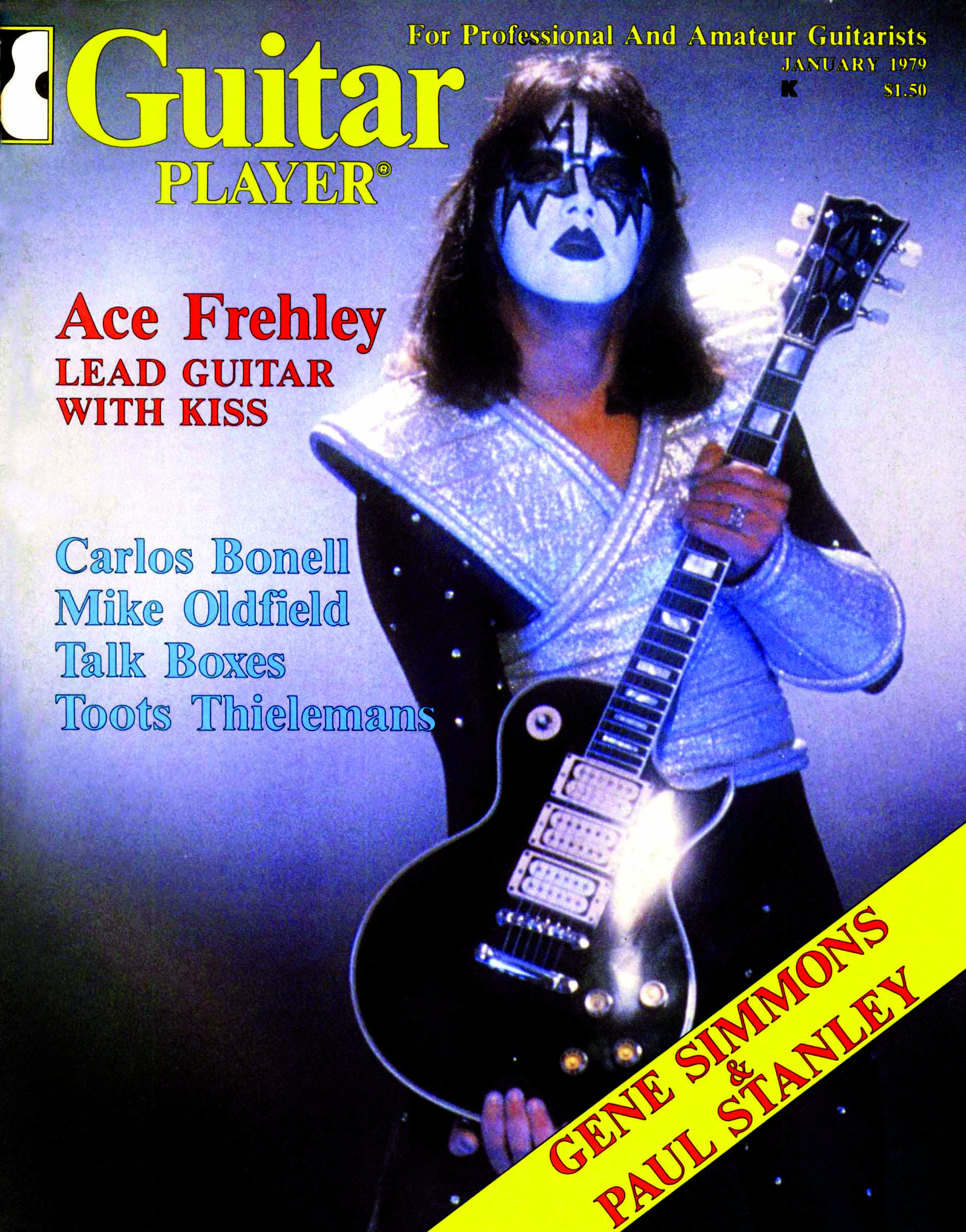
Frehley’s account jibes pretty closely with Simmons’. But in his January 1979 interview with Guitar Player, he added recollections that lend additional nuance to the story.
At the time it wasn’t Kiss,” he told the magazine. “It became Kiss after I joined the group. Peter, Paul and Gene had a trio and a record deal, and they advertised in the Village Voice. At the time I was unhappy with the group I was working with, and I just thought I would try out for the audition.
“We worked out pretty good, and they said, We can’t give you a definite answer today, but call us back in a week or two. They called me back and said, ‘Come back and jam with us again; we really like the way you play.’
All the latest guitar news, interviews, lessons, reviews, deals and more, direct to your inbox!
“After the second audition they said, ‘You’re the one.’
“And I said, ‘I’m the one — I’m not sure you’re the one.’”
Ace laughed at the memory. But as he added, he knew he’d found the band he’d been looking for after he auditioned by playing a solo on “Deuce.”
“They just blew me away with volume. I got very excited, and I said, ‘This is terrific material — I want to jam with these guys.’
“We hit it off. I just played all my cool licks, every lick I ever knew; I jammed from beginning to end.”
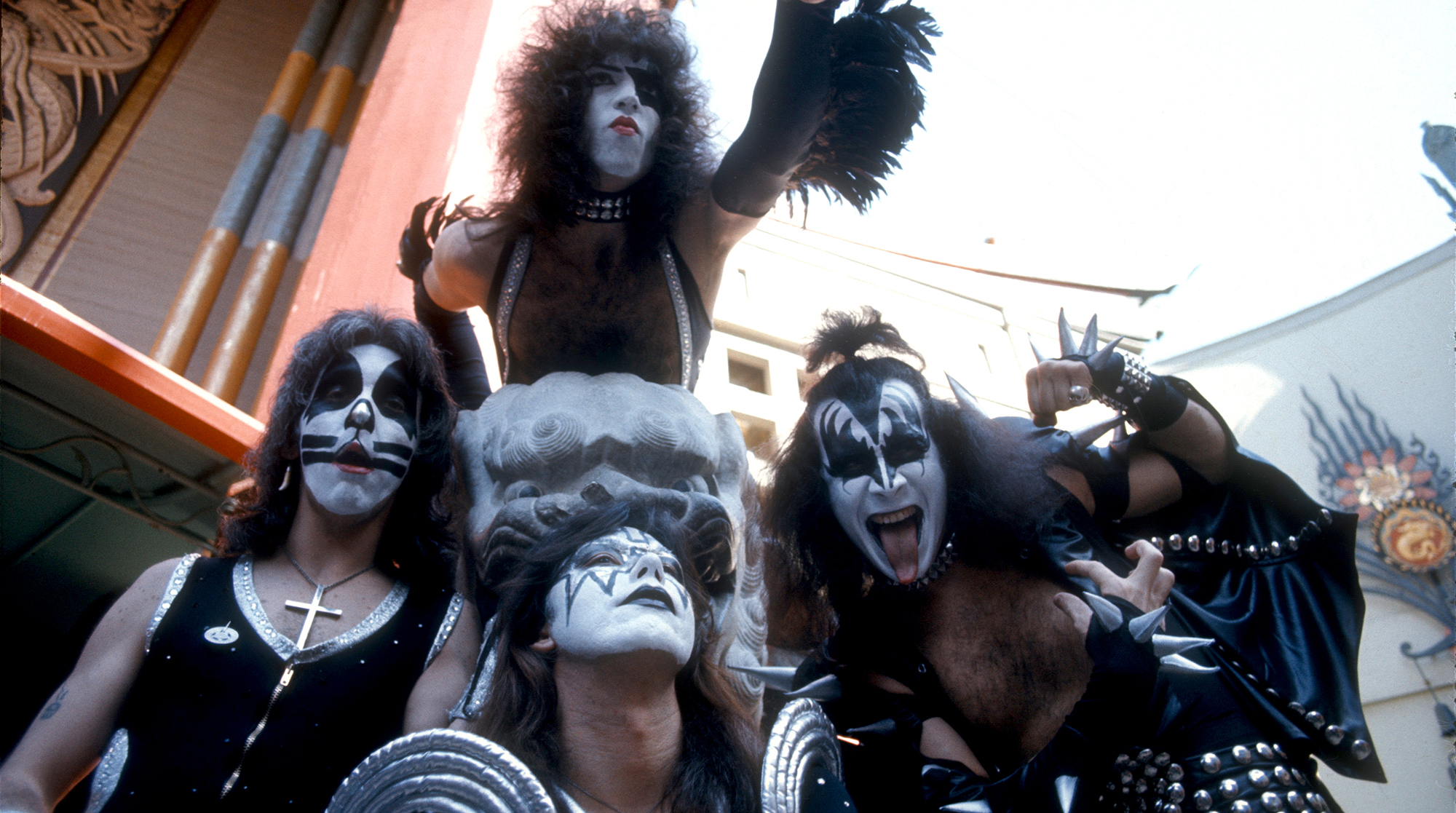
What kind of equipment were you using when you joined the band?
I was using a reverse Gibson Firebird with one pickup and a 50-watt Marshall amp. Once we got our advance money from Casablanca I bought a Les Paul and a 100-watt Marshall. There’s nothing like a Les Paul through a Marshall for that hard rock sound.
What are you using now?
Well, I’ve got about 20 Les Pauls of various models. I have a couple of ’59s, but I don’t use them onstage because we really jump around with acrobatics and everything, and I wouldn’t want to take a chance with getting them hurt or with getting them stolen on the road, because they’re really irreplaceable.
What kind of amplifiers are you currently using?
Still Marshalls, about eight 100-watt heads and 20 speaker cabinets. How many of them we use onstage just depends on the size of the auditorium. We use a minimum of four bottoms and two heads. I’m not really using any special effects except an Echoplex and a Mu-Tron octave divider on a couple of tunes.
Have your guitars been modified?
Yes, I put DiMarzio pickups on the Gibsons. About a year and a half ago I started using three pickups on all my guitars onstage. There are two reasons for that: One, you get a little more variety in tone, and second, it looks cool. I like DiMarzio’s Super Distortion humbucking pickup. It’s really good for getting a ballsy sound. As I said earlier, I used my old vintage guitars on the solo album, not really any of my stage guitars.
I also like to record with vintage amps. After traveling all around the country for four or five years on tour and going into pawnshops, I’ve been able to find some nice ones — about 30 different little amplifiers. There’s a couple of really funky-sounding old Vox AC-30s, the English ones, and an old Ampeg Jet, and an old Fender Harvard model — that’s the one I really like. It’s dynamite.
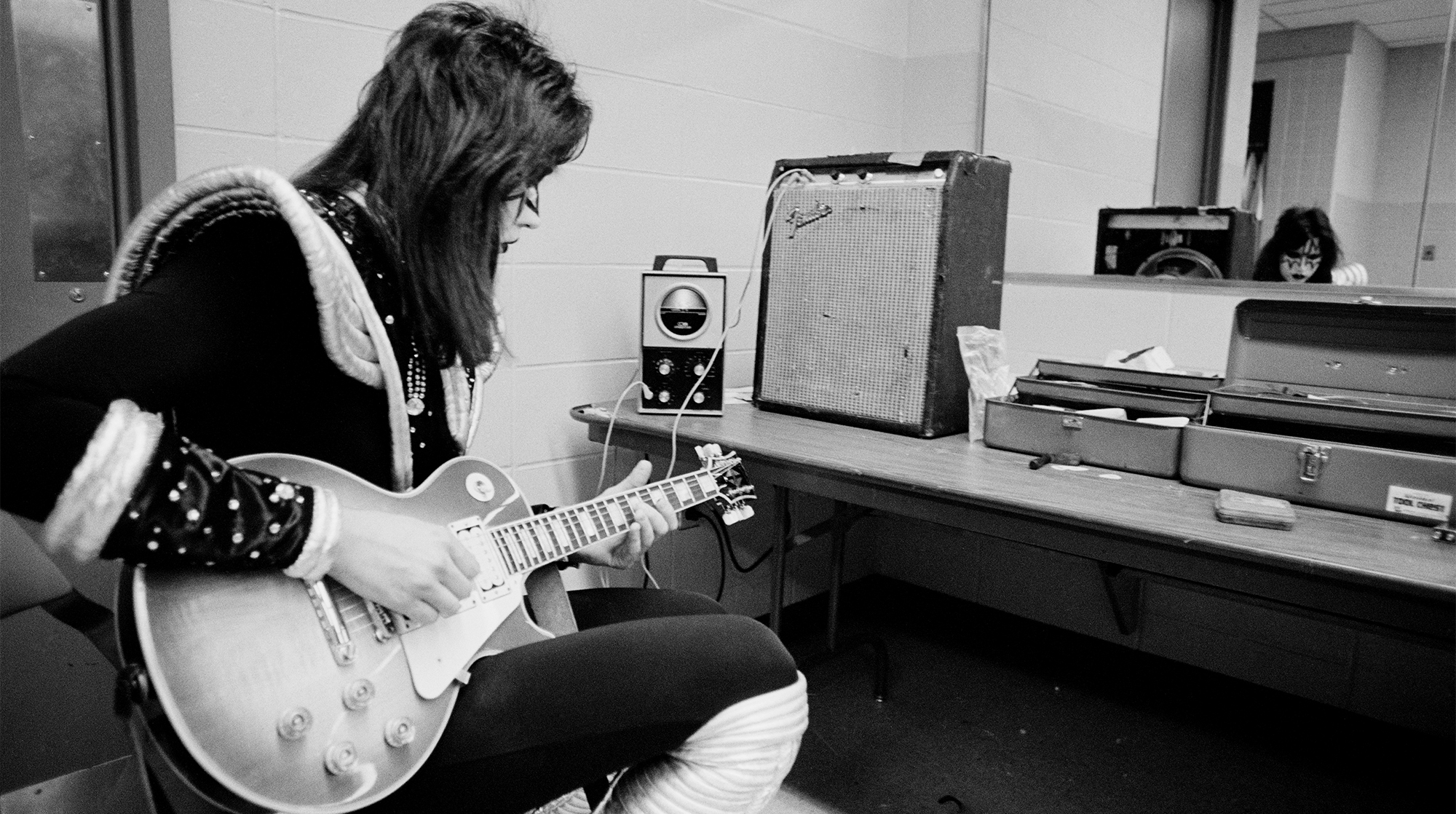
Are there certain settings on the amplifiers that you stick to?
I’ve tried every setting and, to me, you take a 100-watt head and put every knob on 5. Sounds pretty cool.
Are the amps modified?
No. For a while we experimented — you know how it is when you’re a new group on tour. For a while we had little Fender amps and miked them. But sometimes we couldn’t hear what was coming out of the amps because it was going through the P.A., and even though the sound might have been a little better with the small amps it just didn’t feel right not to be able to hear exactly what was going on, so we did away with that.
Now we just go direct into the mixer and also through the amps, and the sound man will mix the right blend between direct and the amps, depending upon what the song calls for.
Are there certain keys that Kiss songs tend to be in?
You should make a note of this: I guess a lot of guitar players who try to copy Kiss records pull their hair out, but we tune down a half-step. So like when I strum an open E chord, it’s really an E♭. That’s the way we record. We’ve been doing it ever since I joined the group, so it’s been a long time.
It works with a smoke bomb; I mean, how do you think it works?
— Ace Frehley
As a hard rock group, we like to use a lot of open strings, and I guess tuning a half-step down also makes it a little easier to sing. That was probably the initial reason, and we just carried it on. I don’t even think about it now.
Are there certain scales or runs that you tend to work from?
When I’m in a major key, I kind of like to play a run where sometimes I go up and drop into a minor scale. I like to do that — I like minor sounds. Every time I hear a major line, I hear a minor one humming. I always had that problem with [producer] Eddie Kramer. Eddie’s such a purist, a classical pianist at heart, and every time he hears that minor third over a major chord, he cringes.
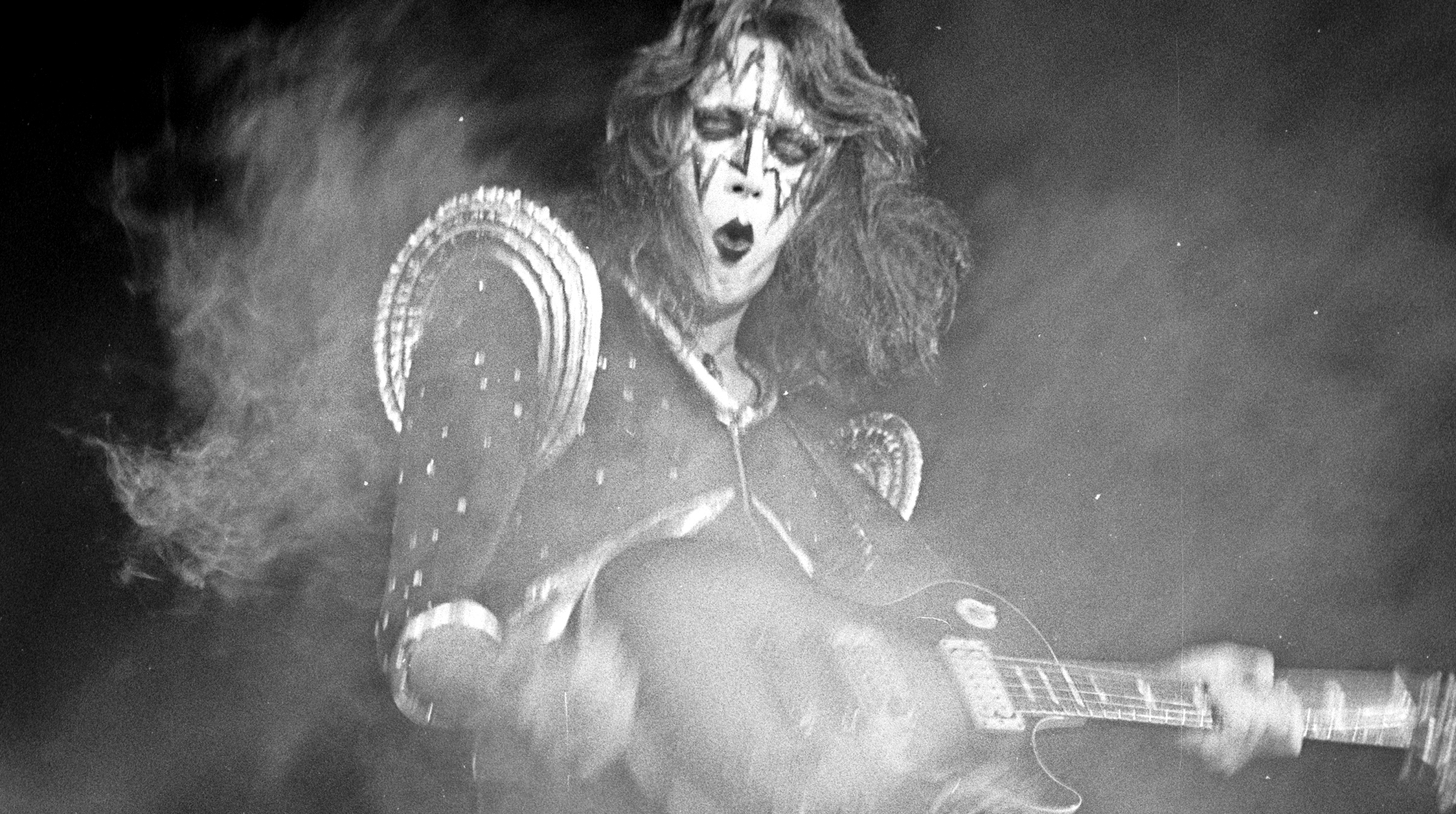
Could you describe how your smoking guitar works?
Well, it is something that me and our engineer developed together. Basically it was my idea that I wanted to have a smoking guitar, and it smokes, you know? It works with a smoke bomb; I mean, how do you think it works? There is an area in the back that was reamed out, and there’s a plate covering it. The smoke bomb is inside, and I trigger it with a button. It looks terrific, doesn’t it?
It’s a great effect. Do you think that all of the flash and excitement that surrounds Kiss ever obscures what you are trying to do as a musician?
I think it might to an extent. Unfortunately, I have felt frustrated at times. I remember in the early days I used to go out, and if I didn’t think I played well I would come off the stage and not be pleased, but if the theatrics went really well most of the audience wouldn’t know.
I’ve been frustrated as a musician at times because the special effects got more reaction than maybe a solo
— Ace Frehley
Then if we did a show and sometimes certain bombs wouldn’t go off or an effect didn’t work, even though you played your ass off the audience reaction might not be as good. You are dealing with people reacting to not only music but also special effects, and in some cases they are reacting to special effects more than to the music.
Whether it is good or bad, I don’t know. All I know is that I’ve been frustrated as a musician at times because the special effects got more reaction than maybe a solo. Sometimes the music gets lost in the barrage of bombs and lights, but the main reason we are involved in the group is entertainment, and we seem to be giving a lot of people enjoyment, and a lot of people get off on the show.
That’s our job, and it’s a give and take; sometimes, you know, you have to take the good with the bad. I am sure I could play better if I didn’t move around, just stood still like most guitar players do. I’d definitely be much more proficient, but you’ve got to give and take a little.
